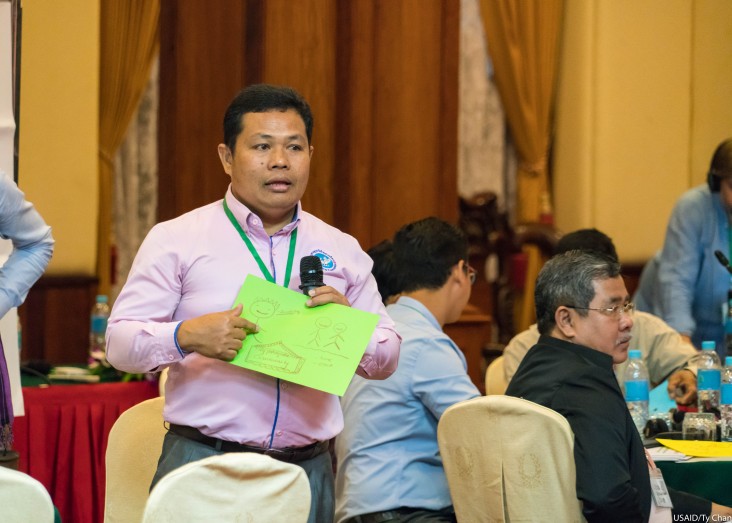
(as prepared for delivery)
It is my great pleasure to welcome all of you to the “Inaugural Workshop of the Technical Working Group for Implementation.” Today’s event kicks off the collaboration to help children in Cambodia.
As TWGI members you represent multiple stakeholders including the government’s relevant ministries, various sectors such as early child development, education, child welfare and protection, disability, labor migration as well as health and nutrition. Sharing your knowledge and experience is crucial to creating a holistic approach to child development.
The TWGI is the primary guiding structure within the Family Care First platform. It is comprised of stakeholders who have the passion and influence to co-develop a data-informed Strategic Action Framework. This framework will increase the number of children in safe, nurturing family-based care, with measurable goals for children and families.
The intention of creating this structure is not to replace existing networks, policies or displace members of the NGO or government community. Instead it should build a platform through which these activities and actors can work more closely together and leverage additional success and financial support. This is especially important in Cambodia where strong networks are already deeply engaged. It recognizes the common thread uniting these actors - a commitment to secure safe, nurturing, family-based care for children.
Too many children in Cambodia grow up without safe, nurturing, family-based care. As a result, more than one-third of Cambodia’s children may not be reaching their full developmental potential. Decades of science and evidence show that responsive, protective, and positive care-giving, together with good health, nutrition, and education, lead to healthy body and brain development. They also reduce violence and exploitation, allow for greater school performance, increase learning capacity, and create more productive societies.
The U.S. government in collaboration with UNICEF is committed to advancing Cambodia’s development, beginning with its children. We’ve taken a close look at this issue in Cambodia. The best way to tackle the problem, we believe, is to take an integrated approach to build strong beginnings, put family care first, and protect children. The early experiences of children have long-term impact on their bodies and brains. That’s why we support actions that underline the importance of body AND brain health, including nutrition and positive caregiving. They should also emphasize the importance of families to children's growth and development and education.
Family Care First is designed to evolve and grow with other sectors that support safe, nurturing, family-based care for children. FCF is about multiple organizations working together with the Royal Government of Cambodia to collectively identify desired outcomes for children and families and achieve measurable results. To achieve this, we are applying an innovative approach to solving complex problems called Collective Impact. It allows us all to focus on the ultimate results we want to achieve for children and families, rather than individual organizational interests or processes.
I want to thank all of you for your support as members of the Technical Working Group for Implementation and your participation in this workshop. I also want to thank Global Alliance for Children colleagues for helping make this workshop a reality - especially their Cambodia office staff that have met and communicated with all of you. We are looking forward to a fruitful and lasting collaboration that achieves “collective impact” and helps all Cambodian children and families.
Related Speeches
- Remarks by Polly Dunford, Mission Director, USAID Cambodia, Launch Event of Feed the Future Cambodia Harvest II
- Remarks by Christina Lau, Deputy Director, Office of Public Health and Education, USAID/Cambodia, Opening Ceremony of the Kick-Off Workshop for “One Health Workforce”
- Remarks by Veena Reddy, Deputy Mission Director, USAID Cambodia, EPIC Showcase







Comment
Make a general inquiry or suggest an improvement.